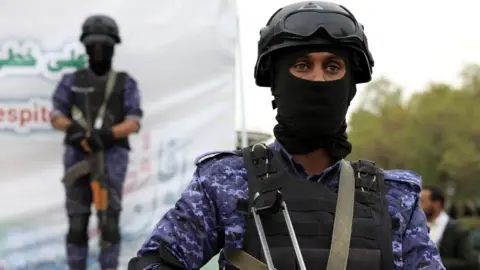The World Health Organization (WHO) has reached an agreement on a “pandemic treaty” after three years of intense discussions among its member nations, aiming to bolster global health responses and avert crises similar to the Covid-19 pandemic. The treaty is a response to the inadequate access to vaccines and treatments that many poorer nations faced during the pandemic, which brought to light critical gaps in international cooperation.
The draft treaty includes provisions that would require wealthier nations to share valuable information about pathogens and to provide technology necessary for health interventions like vaccines. This agreement is poised to be legally binding when member states formally adopt it next month. Notably, the United States, which withdrew from the negotiations after former President Trump’s decision to leave the WHO, is not expected to ratify the treaty, highlighting a shift in the international health landscape.
Experts, like Nina Schwalbe, a global health consultant, have emphasized the significance of this agreement as the first major unilateral accord achieved without U.S. leadership. “It reflects that the global community can coalesce around health initiatives regardless of the United States' current posture,” she commented, acknowledging the challenges and complexities involved in reaching a consensus among 191 states.
The WHO initiated the treaty discussions in December 2021, aiming to create a framework that would enable nations to respond more swiftly to future health threats, learning lessons from the previous pandemic's failures. While expectations were high for a comprehensive agreement, the current draft is seen as a step forward, albeit with recognition of its limitations.
The evolution of this treaty signifies an emerging understanding of global solidarity in health matters, emphasizing that collective action is essential for improving health security worldwide. It lays the groundwork for future collaboration and builds a foundation that can be strengthened over time. As nations prepare to adopt this treaty, the discourse surrounding global health governance continues to evolve, potentially reshaping how public health challenges are approached in the future.
The draft treaty includes provisions that would require wealthier nations to share valuable information about pathogens and to provide technology necessary for health interventions like vaccines. This agreement is poised to be legally binding when member states formally adopt it next month. Notably, the United States, which withdrew from the negotiations after former President Trump’s decision to leave the WHO, is not expected to ratify the treaty, highlighting a shift in the international health landscape.
Experts, like Nina Schwalbe, a global health consultant, have emphasized the significance of this agreement as the first major unilateral accord achieved without U.S. leadership. “It reflects that the global community can coalesce around health initiatives regardless of the United States' current posture,” she commented, acknowledging the challenges and complexities involved in reaching a consensus among 191 states.
The WHO initiated the treaty discussions in December 2021, aiming to create a framework that would enable nations to respond more swiftly to future health threats, learning lessons from the previous pandemic's failures. While expectations were high for a comprehensive agreement, the current draft is seen as a step forward, albeit with recognition of its limitations.
The evolution of this treaty signifies an emerging understanding of global solidarity in health matters, emphasizing that collective action is essential for improving health security worldwide. It lays the groundwork for future collaboration and builds a foundation that can be strengthened over time. As nations prepare to adopt this treaty, the discourse surrounding global health governance continues to evolve, potentially reshaping how public health challenges are approached in the future.





















